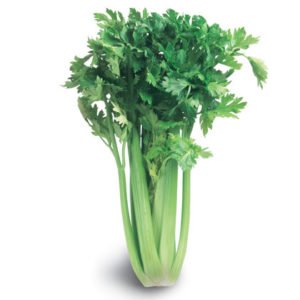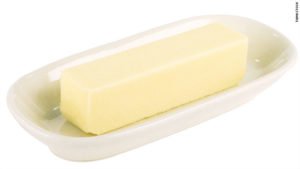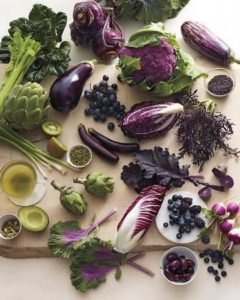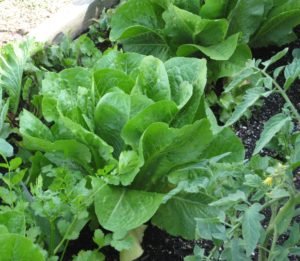by Susan Dean | Feb 2, 2018 | Benefits of Certain Foods, Health

7 Benefits of Celery:
Immune System
The high amounts of vitamin C in celery promote a healthy immune system.
Blood Pressure
Celery contains pthalides, which have been shown to lower blood pressure by relaxing the muscles around the arteries and allowing vessels to dilate. The calcium, magnesium, and potassium in celery also helps regulate blood pressure.
Cholesterol
The pthalides in celery may also lower cholesterol by increasing bile acid secretion.
Cancer
Celery contains coumarins that have been shown to be effective in the prevention of cancer.
Diuretic
Celery has been used as a diuretic for centuries. Its diuretic effect comes from its balance of potassium and sodium that helps to flush out excess fluid from the body.
Inflammation
Celery is believed to have anti-inflammatory properties, which may help with ailments attributed to inflammation such as arthritis.
Diet Aid
Celery will not directly cause you to lose weight, but it is a great aid in weight loss because it is very low in calories and has a lot of filling fiber.
Detox Drink Celery, Parsley, Cilantro, Pineapple or an Apple, Lime Juice/Water and Cucumber blender or juiced together. Drink before breakfast and before lunch for 7 days, rest 7 days and then repeat. Suggestion is to do once every 3 months to detox the body as needed.

by Susan Dean | Feb 2, 2018 | Benefits of Certain Foods, Health

Benefits of Coffee
Hippocrates said, “Let food be thy medicine and medicine be thy food.” Food can heal the body. Coffee is probably the greatest source of antioxidants in the global diet. And while having lots of it isn’t recommended for everyone, for some of us, it may just be the superfood of the century. Here are nine reasons to start the day with this healing drink.
It may lower risk of death.
Coffee appears to lengthen the “when” for individuals with certain chronic conditions such as heart disease and diabetes, according to a large 2012 study. The study found that the more coffee (three or more cups a day), the lower the risk of death regardless of whether participants drank caffeinated or decaffeinated coffee.
It helps make the reproductive systems happy.
Coffee lowers the risk of prostate cancer, and the risk of endometrial cancer. A 2011 study found that men consuming six or more cups a day reduced their risk of prostate cancer by 20 percent! Another study published in the Journal Cancer Epidemiology, Biomarkers and Prevention found that women who drank more than four cups of coffee a day had a 25 percent lower risk of endometrial cancer.
Helps lower the risk of developing Type 2 diabetes.
A 2012 study found that a compound in coffee helped to block a substance that may play a role in the development of diabetes. Further studies demonstrated that caffeinated coffee consumption is linked to decreased diabetes risk.
Helps protect the brain.
Coffee drinkers are more likely to resist development of dementia and Alzheimer’s later in life according to a 2009 study. Another study found that the smell of coffee helped to reduce stress associated with loss of sleep.
Helps recovery after colon surgery.
One big sign of recovery from surgery is the return of bowel function. One study found that coffee consumption helped to speed this recovery sign when compared to water drinkers.
It’s great for skin.
Drinking coffee may help you to ward off the most diagnosed form of skin cancer! A study in the journal Cancer Research looking specifically at the caffeine in coffee demonstrated that coffee drinkers had a lower risk of developing basal cell carcinoma.
May help reduce the risk of oral cancer.
A recent large study found that individuals who drank four or more cups of coffee a day had a 50 percent lower risk of death from oral cancers in a 25-year time frame.
May help strengthen your muscles — and DNA.
A study in the journal Cell Metabolism found that caffeine actually had a similar effect to our DNA molecules in our muscles as exercise (now, this does not mean you can stop exercising). The study looked specifically at DNA changes of muscles in sedentary individuals and found that positive effects from coffee were similar to effects derived from exercise. The most interesting factor in the study was the fact that these positive changes were seen rather quickly.
Consumption of coffee is not recommended for everyone. While you may automatically think that patients with heart problems avoid the java, some studies actually show benefit of coffee consumption for heart patients. Individuals that are pregnant or going through IVF treatments should avoid consumption of coffee. Individuals struggling with insomnia or depression should limit coffee intake. Keep the coffee cup out of your children’s hands and let them experience the wonders of coffee when they get older.
by Susan Dean | Feb 2, 2018 | Benefits of Certain Foods, Health
 Butter Super Food Butter is a healing superfood. It has the highest source of conjugated linoleic acid (CLA), a powerhouse fatty acid. CLA concentration varies with the season. CLA concentration is 4 times higher in summer milk than winter, due to pasture grazing. CLA inhibits cancer, according to one report in the Journal of Nutrition:“In a number of studies, conjugated linoleic acid, at near-physiological concentrations, inhibited mammary tumorigenesis independently of the amount and type of fat in the diet. “
Butter Super Food Butter is a healing superfood. It has the highest source of conjugated linoleic acid (CLA), a powerhouse fatty acid. CLA concentration varies with the season. CLA concentration is 4 times higher in summer milk than winter, due to pasture grazing. CLA inhibits cancer, according to one report in the Journal of Nutrition:“In a number of studies, conjugated linoleic acid, at near-physiological concentrations, inhibited mammary tumorigenesis independently of the amount and type of fat in the diet. “
Additionally, this fatty acid has been shown to inhibit the growth of skin, colon, breast and lung cancer cells. Multiples studies reveal that CLA reduces the size of tumors in lab rats.
These studies show why butter is important for children to eat! CLA fed to rats before the perpubertal period prevented the growth of tumors, but when the rats weren’t fed CLA until maturity, they had to consume the fatty acid for the rest of their life to prevent tumor growth.
Butter contains 4% butyric acid, an anti-carcinogenic short-chain fatty acid. It inhibits the growth of mammary tumors. Butyric acid is a biological response modifier, a substance that arouses the body’s response to infection.
Butter does NOT make you fat. Butter is a rich source of short and medium chain fatty acids, and these molecules “are not deposited to any extent in the adipose tissue”
Butter contains vitamin K2. Weston Price recorded his investigation of this vitamin and found that butter high in K2, combined with “a favorable selection of natural foods” successfully treated tooth decay. Interestingly, the concentration of K2 in butter varied greatly depending on the cow’s food with a prominent increase when the cows were pasture grazing
Scientists continue to explore the importance of K2 in diet. A recent study published by a European nutrition journal showed that an increased consumption of K2 may reduce the risk of prostrate cancer by 35 percent
Butter is packed with Fat-Soluble Vitamins. It is a potent source of vitamins A, D, and E, and the perfect carrier for these vitamins because it provides the fat needed for their absorption. It offers these vitamins to your body in the most assimilable form. In animal sources, vitamin A is a retinol and requires a little work by the body to make this conversion. On the other hand, the body is very inefficient at converting cartenoids from plant sources (like beta-carotene in orange veggies) into useable vitamin A.

by Susan Dean | Feb 2, 2018 | Benefits of Certain Foods, Health

The Alkalizing BLUE and PURPLE FOODS:
Purple Cauliflower, Purple Cabbage, Purple Kale, Purple Eggplant, Purple Onion, Acai Berries, Black Currants, Black Salsify, Blackberries, Blueberries, Eggplants, Grapes, Plums, Prunes.
These foods are good for protecting the urinary tract and memory function from metabolic and dietary acid and for slowing down aging & keeping the lungs healthy. They lower the risk of some cancers. Blue and purple shaded fruit and vegetables add health-enhancing flavonoids, phytochemicals, and other antioxidants the buffer excess metabolic and dietary acid.
The blue and purple fruit and vegetables contain alkalizing nutrients that support retinal health, lowers LDL cholesterol, supports the immune system activity, supports healthy alkalizing of the foods and liquids ingested, improves calcium and other alkaline mineral absorption, buffers all acids that cause inflammation, prevents and reduces tumor growth, acts as an anti-carcinogen in the alimentary canal, and limits the activity of acid that causes cancerous cells. Blueberries contain high amounts of alkalizing vitamins and minerals such as folic acid, potassium and fiber.
Nutrients in The Alkaline Blues and Purples:
1. INDOLES: Purple Cauliflower, Purple Cabbage. Derived from sulfur compounds in cruciferous veggies, these may slow the metabolism of carcinogens and metabolic and dietary acids. Steam cauliflower to retain indoles. Toss chopped kale with mashed avocado and olive oil.
2. ELLAGIC ACID: Purple and Blue Berries. The phytochemicals may lessen the effect of the acid estrogen in causing breast-cancer cell growth. Keep frozen berries on hand for smoothies. Blend them with spinach, avocado, and alkaline ice to buffer the acids or sugars in the mildly acidic berries.
3. ANTHOCYANINS: Red Cabbage, Purple Eggplant, Grapes, and Berries. These antioxidants or anti-acids improve brain function and balance, and they reduce metabolic and dietary acid that increases the risk for cancer, stroke, and heart disease. Try swapping in finely shredded cabbage for your typical salad greens and toss with avocado and purple onion.
by Susan Dean | Feb 2, 2018 | Benefits of Certain Foods, Health

Instant Mood Boost
Eggs contain a beneficial blend of omega-3 fatty acids, zinc, B vitamins, and iodide, nutrients that work together to battle fatigue and reverse bad moods. Don’t be tricked by “free-range” eggs. The hens may still be housed inside of warehouses but at least not in tiny cages.
Nourish Your Muscular System
Eggs are one of nature’s best food sources, packaging muscle-protecting protein in a low-calorie food. The B12 in eggs aids in muscle contraction, a must for avid gardeners! Don’t be fooled by the word natural on your egg carton. “Natural” eggs could come from hens fed antibiotics and genetically engineered feed, two things banned in organic eggs.
Guard Against Cancer
Women who eat higher levels of choline, a nutrient found in eggs, are 24 percent less likely to develop breast cancer, according to a recent study. One large egg boasts about 30 percent of your recommended dietary allowance of choline. Most choline is concentrated in the yolk.
Feed Your Brain
The choline in eggs helps keep your memory sharp while increasing the release of acetylcholine, a neurotransmitter that helps your brain store and recall information better. Eggs from hens raised outside on grass pastures contain more omega-3 fatty acids that help power your brain. Find a farmer who raises birds on pasture and supplements with organic feed. Eggs from chickens raised on grass produce eggs with much vitamin E, which scientists believe could help protect you from developing Alzheimer’s disease.
Save Your Sight
Eggs are a rich source of lutein and zeaxanthin, antioxidants that help stave off macular degeneration and cataracts. (eat the yolks!) For a more potent eye-protecting meal, mix lutein- and zeaxanthin-rich kale or spinach into your omelet.
Slim Down
Here’s a delicious way to lose weight! When obese people choose an egg breakfast over bagels at least five times a week, they lost 65 percent more weight. And Saint Louis University scientists discovered that eating eggs in the morning led to eating fewer calories throughout the rest of the day, too. Organic, Animal Welfare Approved, and Certified Humane eggs ban the practice of routinely feeding antibiotics to hens.
Stop Extinction
You can help preserve old-school chicken breeds based on the eggs you choose to eat. Industrial farming generally uses one or two different hen breeds, which threatens the diversity of the species’ gene pool. Demand for heritage breed eggs is causing a surge in other breeds—some were or are on the verge of extinction!
Search LocalHarvest.org to find farmers in your area that raise heritage breed hens out on pasture.
How to tell if an egg is rotten. How eggs should look in cold water:
If one to two days old, the egg will lay almost flat along the bottom of the pan.
When one week old, it will angle upwards a bit, but still touch bottom of the pan.
About two weeks, egg will start to stand upright, with tip of egg still touching bottom of pan.
If egg is a few weeks old, it will bob off of bottom of pan. Egg isn’t necessarily rotten, but serve it hard-boiled or baked well.
Beyond four to five weeks after egg is laid, it will float to the top of the water. This is what you call a “rotten egg.”
Eight reasons to eat eggs for breakfast
1. Keep you feeling full longer than cereal or toast. Help sustain your energy levels and reduce the need for mid morning snack.
2. Assist weight loss.
3. A most complete sources of protein. Contain all essential amino acids we need.
4. Inexpensive.
5. Don’t increase risk for heart disease.
6. Help brain development and memory.
Choline stimulates brain development and function and is linked with increasing memory retention, recall,, and improving alertness.
7. Help protect eyes from damage related to UV exposure. Reduce the likelihood of developing cataracts in old age.
8. Your hair and nails grow faster and stronger.
by Susan Dean | Feb 2, 2018 | Benefits of Certain Foods, Health

EAT YOUR GREENS – Kale is king when it comes to nutrients, but many of these leafy greens are not far behind. The Centers for Disease Control and Prevention just named leafy greens as the number one source of food borne illnesses in the U.S. But by no means should you stop eating them. Opt for organic greens or grow your own—they’re super easy.
Chard is rich in vitamins A, K and C, minerals, fiber and protein, chard is full of healthy nutrients.
Arugula is a spicy winter green perfect for salads and sandwiches or lightly stir fry it. It is a great source of vitamins A, K and folate and is high in potassium, calcium and contains omega fatty acids.
Watercress has a delightful bite similar to arugula. It’s been touted as a superfood and believed to have anti-cancer properties.
Mustard is a good option for reducing cholesterol by eliminating bile from the digestive tract. Mustard is full of potent anti-inflammatory and anti-cancer properties and flavor!
Dandelion is one of nature’s most dynamic healers. It can cleanse the blood, heal the liver, dissolve kidney stones, purify skin and help you maintain your ideal body weight! Add them to your favorite green smoothie recipe, sauté them up or use like lettuce in a salad or sandwich.
Mizuna is a mix between arugula and mustard, mizuna’s flavor is piquant, bright and earthy. Try it with sliced cucumbers, a pinch of salt and lots of lemon.
Bok choy called Chinese cabbage, bok choy is much lighter than cabbage. It’s watery and sweet and very flavorful as well as a great source of vitamins A and C. Use it as you would cabbage—raw or cooked. It’s excellent in stews and Asian-inspired stir-fries. Rapini is full of calcium and iron, vitamins A and C, and incredible flavor and texture. It really needs little else—saute in a bit of olive oil (add garlic if you like) and a bit of salt and pepper and a dash of lemon.
Lamb’s quarters grow wild in this country. It’s easy to grow too. Sometimes it’s sold as mache. A very rich source of vitamins A, C, K and folate, it’s also high in calcium, iron, potassium and magnesium. Eat them raw in a salad or lightly sautéed with olive oil.
Tatsoi also called spinach mustard, looks a little like baby bok choy. Rich in calcium, potassium, and vitamin C, it’s a healthy addition to your salads or sautéed greens.
Collards are a staple in Southern cuisine and is rich in soluble fiber and anticancer properties. Use it as a raw tortilla wrap, or stuff it like cabbage leaves.








